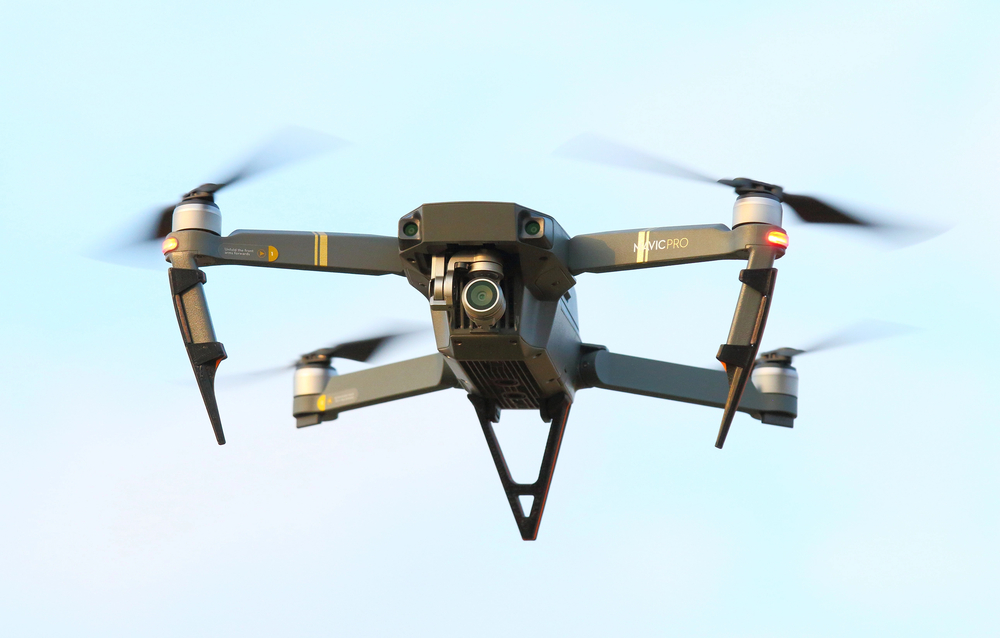Those who hoped that our leaders have recovered from China Derangement Syndrome (CDS) may soon be disappointed. This is because Congress is considering including legislation targeting Chinese drone manufacturer DJI to this year’s National Defense Authorization Act (NDAA).
DJI is the world’s largest drone manufacturer and is estimated to control between 65% and 90% of the world’s drone market. DJI’s drones are user-friendly and can safely be operated even by novice drone users.
One reason for DJI’s popularity is it protects their users’ privacy. DJI does not store user data within its system unless the user opts to. DJI also uses a “Local Data Mode” assuring that user data is locally controlled and kept off the internet. Universities, filmmakers, hobbyists, farmers, and first responders are amongst those who use DJI drones. Many businesses have found DJI an invaluable tool to increase efficiency. Individuals and businesses use DJI drones to take photographs, record videos, and even do deliveries.
You soon may have your pizza flown to you thanks to a DJI drone. More importantly, a DJI drone operated by a first responder could someday save your life and/or the life of a loved one—unless Congress gets in the way.
CDS has led many in Congress to conclude that because DJI is a Chinese company, it is controlled by the Chinese government and the Chinese Communist Party (CCP)—even though no representative of the Chinese government or the CCP sits on DJI’s board—has influence over the companies’ policies and operations.
These facts have not stopped Rep. Elise Stefanik (R-NY) from introducing two bills to “protect” the American-people from DJI. One, the Countering CCP Drones Act, adds DJI products to the official list of items constituting a “national security risk” that are banned in the USA. The bill would do more than just prevent future purchases of DJI products; it could lead to the Federal Communications Commission revoking existing authorizations for DJI drones.
Stephanik’s second bill, the Drones for First Responders Act, imposes a 50% tariff (phased in over five years) on all drones made in China or made by a Chinese company. Revenue from the tariff will be used to finance a new federal grant program providing drones to first responders, farmers, and ranchers.
The bill has two self-contradictory goals. First, raise tariffs to discourage the use of Chinese drones. And second, raise tariffs to fund a drone grant program. A 50% tariff will likely achieve goal number one, but will also mean there will not be enough revenue raised to achieve goal two. Therefore, if the grant programs are to be able to meet what is sure to be high demand, Congress will either have to lower the tariffs—thus making Chinese-made drones more attractive to consumers—or use money from general revenues to fund the program.
According to a 2023 analysis by John Dunham and Associates, banning DJI from America would result in the closure of 67% of American small drone businesses—and the loss of more than 450,000 jobs. Passage of either the Countering the CDP Drones Act or the Drones for First Responders Act would also harm the individuals and businesses who benefit from DJI drones and force them to pay more for a potentially inferior substitute. It would also endanger first responders and those they are trying to help by depriving them of access to drones that can fly into hazardous situations, removing a tool that empowers an action plan to save lives without putting themselves at unnecessary risk.
Unfortunately, the protection from CCP Drones Act has been added to the House version of the 2024 NDAA, and there is talk that the Drones for First Responders Act will also be added. Hopefully, the final version of the bill will contain neither provision and Congress will stop using its CDS as an excuse to assault the American people’s liberty and prosperity.
































